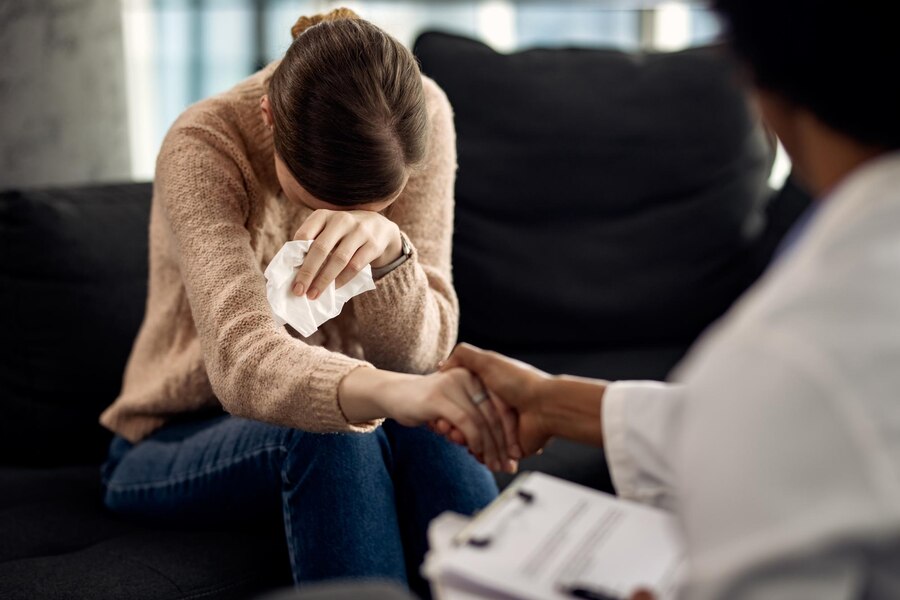In today’s fast-paced world, prioritizing mental health is more crucial than ever. Amidst the chaos of everyday life, it’s easy to feel overwhelmed, anxious, or even lost. However, there’s a beacon of hope: Intensive Outpatient Programs (IOP). In this blog post, we delve into how IOP can be a transformative tool in reclaiming control over your mental well-being. Whether you’re struggling with depression, anxiety, substance abuse, or other mental health challenges, IOP offers a structured yet flexible approach to treatment. By combining therapy, group support, and personalized care, IOP empowers individuals to navigate their journey towards healing while maintaining their daily commitments. Join us as we explore the myriad benefits of IOP and discover how it can be a pivotal stepping stone towards a brighter, healthier future.
Holistic Approaches to Mental Health in Intensive Outpatient Programs

In the realm of mental health treatment, a holistic approach acknowledges the interconnectedness of our physical, emotional, and spiritual well-being. Intensive Outpatient Programs (IOPs) have embraced this holistic philosophy, recognizing that true healing involves addressing all aspects of a person’s life. In this blog post, we’ll delve into the holistic approaches utilized in IOPs, exploring how they promote comprehensive wellness and lasting recovery.
Mind-Body Connection
Holistic IOPs emphasize the intricate connection between the mind and body. Through various therapeutic modalities such as yoga, mindfulness practices, and physical exercise, individuals learn to cultivate awareness of how their thoughts and emotions manifest physically. By nurturing this mind-body connection, participants can better manage stress, reduce symptoms of anxiety and depression, and enhance overall well-being.
Nutritional Support
Proper nutrition plays a significant role in mental health. Holistic IOPs often incorporate nutrition education and counseling to help individuals understand the impact of diet on mood and cognitive function. By adopting balanced and nourishing eating habits, participants can optimize their brain health and support their journey towards mental wellness.
Emotional Wellness Workshops
Emotional wellness workshops within IOPs provide a safe space for individuals to explore and process their feelings. Through group discussions, expressive arts therapy, and emotion-focused exercises, participants learn healthy ways to express and regulate their emotions. By building emotional resilience and self-awareness, individuals develop valuable coping skills to navigate life’s challenges.
Spiritual Exploration
For many, spirituality is an integral component of mental health and recovery. Holistic IOPs offer opportunities for spiritual exploration and growth, respecting each individual’s unique beliefs and practices. Whether through meditation, prayer, or reflective journaling, participants can deepen their connection to a higher power or inner wisdom, finding solace and strength in their spiritual journey.
Environmental Considerations
The environments in which we live, work, and play can profoundly impact our mental well-being. Holistic IOPs take into account the environmental factors contributing to a person’s mental health, offering support and guidance to create positive and supportive surroundings. Whether through stress management techniques or lifestyle adjustments, participants learn to cultivate environments that nurture their recovery.
Developing Coping Strategies Through Intensive Outpatient Programs
In the journey of mental health recovery, developing effective coping strategies is essential for managing stressors and maintaining well-being. Intensive Outpatient Programs (IOPs) provide individuals with the tools and support needed to cultivate these coping skills. Let’s explore how participation in an IOP empowers individuals to develop practical coping strategies for navigating life’s challenges.
- Assessment and Individualized Plans: Upon entering an IOP, individuals undergo assessments to identify their unique stressors and triggers. Therapists then collaborate with them to develop personalized coping plans tailored to their needs and goals.
- Learning Coping Techniques: Through a variety of therapeutic modalities, including cognitive-behavioral therapy (CBT), mindfulness practices, and relaxation techniques, participants learn practical coping strategies for managing stress, anxiety, and depression.
- Practice and Application: In IOPs, individuals have the opportunity to practice their coping skills in a supportive environment. Through role-playing, guided exercises, and real-life scenarios, they gain confidence in applying these strategies to everyday situations.
- Building Resilience: Coping strategies taught in IOPs not only help individuals manage immediate stressors but also build resilience for the long term. By learning to adapt to challenges and bounce back from setbacks, participants develop greater emotional strength and endurance.
Empowering Yourself Through Intensive Outpatient Programs
Embarking on the journey of mental health recovery can feel overwhelming, but within Intensive Outpatient Programs (IOPs), individuals discover a powerful sense of empowerment. These programs provide not only the tools and resources needed for healing but also the guidance and support to take control of one’s mental health journey. In this blog post, we’ll explore how participating in an IOP can empower individuals to reclaim their lives and cultivate resilience.
Education and Understanding
Empowerment begins with knowledge. In IOPs, individuals receive education about their mental health conditions, treatment options, and coping strategies. By understanding their diagnoses and the factors contributing to their struggles, participants gain a sense of agency and ownership over their recovery process.
Setting Personalized Goals
Within IOPs, individuals work collaboratively with therapists to set personalized goals tailored to their unique needs and aspirations. Whether it’s improving coping skills, enhancing relationships, or pursuing personal interests, setting achievable goals empowers individuals to take proactive steps towards positive change.
Active Participation in Treatment
Unlike traditional forms of treatment, IOPs encourage active participation in therapy and recovery activities. Through group therapy sessions, individual counseling, and experiential workshops, individuals engage in their healing process actively. This hands-on approach fosters a sense of autonomy and self-efficacy, empowering participants to take ownership of their journey.
Building Self-Awareness
Self-awareness is key to empowerment. In IOPs, individuals engage in introspective exercises and self-reflection to deepen their understanding of themselves and their triggers. By becoming more attuned to their thoughts, emotions, and behaviors, participants gain greater control over their responses and can make informed decisions aligned with their values and goals.
Developing Coping Skills
Coping with life’s challenges is a fundamental aspect of mental health recovery. In IOPs, individuals learn a variety of coping skills and strategies to manage stress, regulate emotions, and navigate difficult situations. By honing these skills, participants feel more equipped to face adversity with resilience and confidence.
Conclusion
Taking control of your mental health is a courageous and essential step toward a better quality of life. At Core Recovery in Phoenix, Arizona, our Intensive Outpatient Program (IOP) offers comprehensive support tailored to your unique needs. Our dedicated team is here to guide you through evidence-based therapies, ensuring you have the tools and strategies necessary for lasting recovery.
If you’re ready to make a positive change, contact Core Recovery today at 602-926-7729. We’re committed to helping you on your journey to mental wellness. Reach out and start your path to recovery with us.





